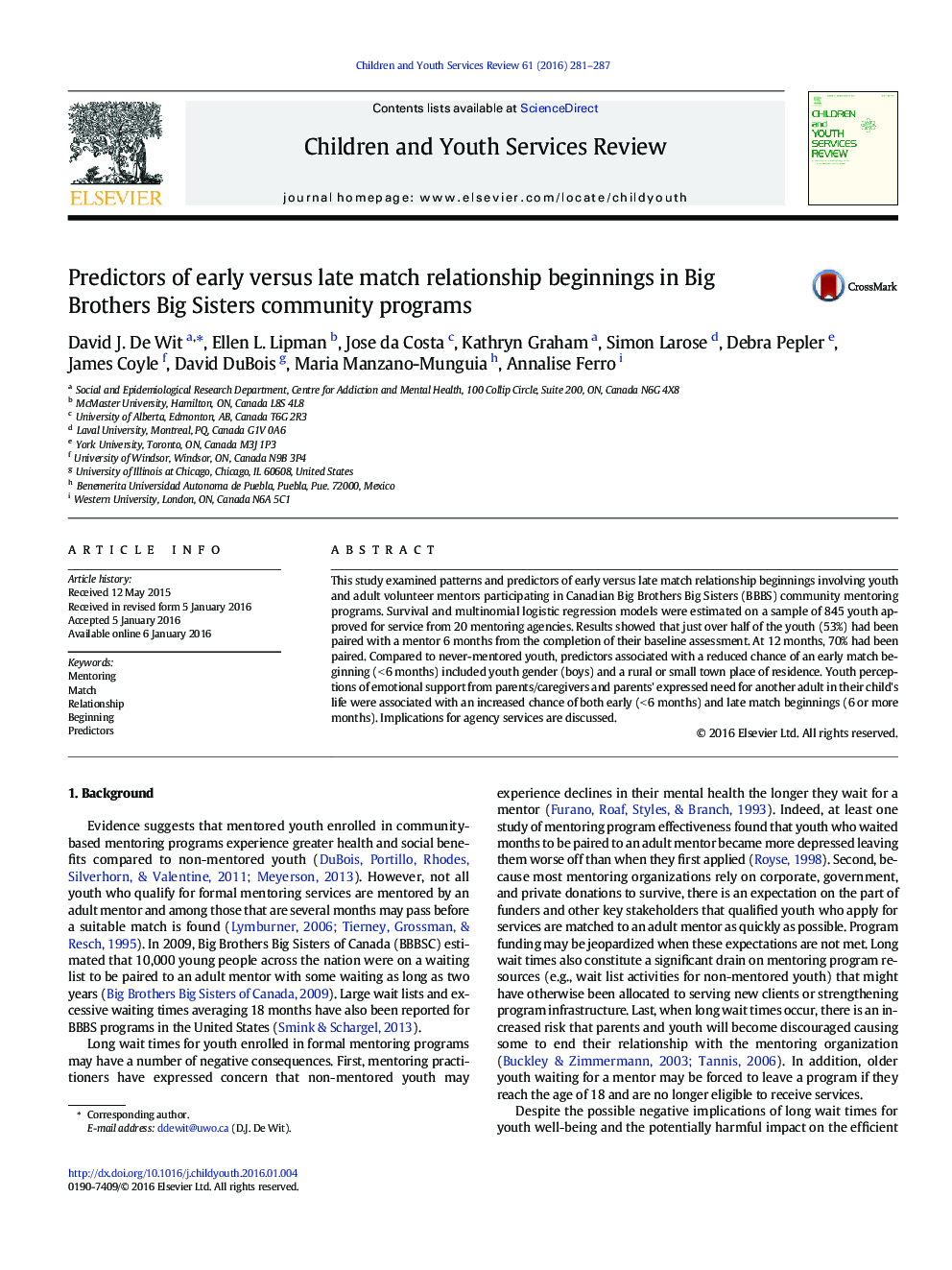| Article ID | Journal | Published Year | Pages | File Type |
|---|---|---|---|---|
| 345900 | Children and Youth Services Review | 2016 | 7 Pages |
•Boys had a 70% lower odds than girls of experiencing an early match•Rural area youth experienced a 68% lower odds of an early match•Emotional support from parents increased the odds of early and late matches•Parent desires for an adult role model for their child increased the odds of early and late matches
This study examined patterns and predictors of early versus late match relationship beginnings involving youth and adult volunteer mentors participating in Canadian Big Brothers Big Sisters (BBBS) community mentoring programs. Survival and multinomial logistic regression models were estimated on a sample of 845 youth approved for service from 20 mentoring agencies. Results showed that just over half of the youth (53%) had been paired with a mentor 6 months from the completion of their baseline assessment. At 12 months, 70% had been paired. Compared to never-mentored youth, predictors associated with a reduced chance of an early match beginning (< 6 months) included youth gender (boys) and a rural or small town place of residence. Youth perceptions of emotional support from parents/caregivers and parents' expressed need for another adult in their child's life were associated with an increased chance of both early (< 6 months) and late match beginnings (6 or more months). Implications for agency services are discussed.
